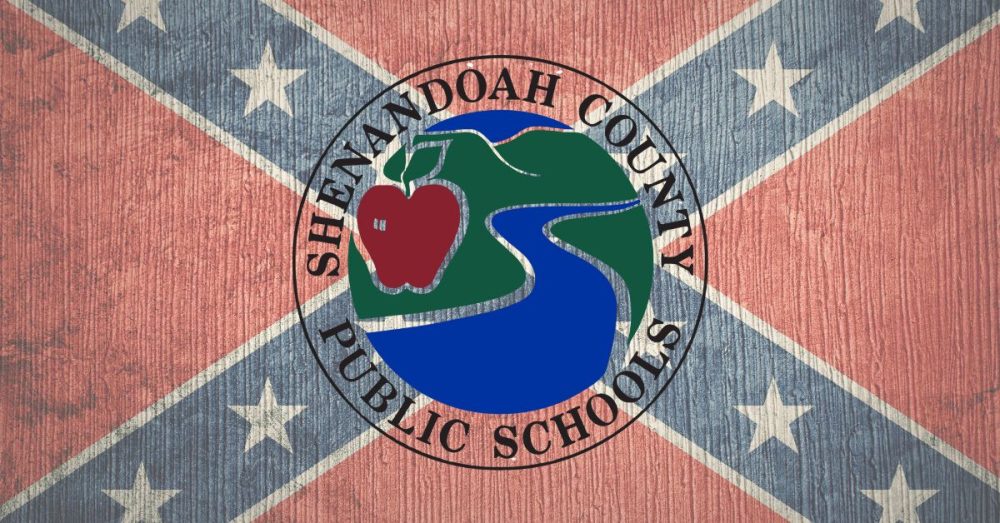After recently making history as the first school board in the nation to restore the names of Confederate generals to a public elementary and a high school, the Shenandoah County School Board is fending off attacks from the press and others.
Mountain View High and Honey Run Elementary’s names were restored to Stonewall Jackson High and Ashby-Lee Elementary after a four-year interlude when the board voted to restore them in May.
Gloria Carlineo, a school board member, recently appeared on the Cowtown Caller podcast to talk to The Dallas Express about the Virginia community’s fight and the history of the name changes.
Media outlets have called the restoration “racist.” She claims that periodicals, such as The Washington Post, have repeatedly failed to represent the board’s side or scrutinize what made the reversal such a priority for the small southern community.
DX asked Carlineo if she thought restoring the names was racist.
“Not at all,” she said before noting that The Post did not contact her for comment on its story. She also said she was not aware of any news outlet contacting any other board member for comment so that they could make their case to readers.
“We had no incidents of racial discrimination or racial issues here, especially at those schools during that time at all,” she said of Stonewall Jackson High and Ashby-Lee Elementary.
The Post repeatedly described the restoration of the names as “inflaming tensions” without balancing the perspective by not considering that the previous left-leaning school board might have caused strife by forcing a name change onto the community.
Other news stories by The Post also broadly portray the initial name change in 2020 as part of a “racial reckoning” after the death of George Floyd in Minnesota, and nearly all of the publication’s coverage seems to suggest that the initial name changes were justified.
Carlineo rejected the notion that the current school board “inflamed tensions” with the name changes. Instead, she claimed that the previous board’s actions were inflammatory and were only supported by “five or six” activists in the area.
She said that not only was the initial decision to change the names made in less than a week with COVID-19 lockdowns preventing public comment, but documents she provided to DX reveal that the school board members deliberately sought to “condense the time that folks have to contact us.”
In another exchange, officials agreed that they should push the change forward as expeditiously as possible so that it would not be on the agenda when they encountered an anticipated fight over re-opening schools from the COVID-19 lockdowns in August of that year.
Carlineo explained that parents in the community organized themselves, and every school board member who voted to take down the names of the famed generals either retired or was replaced. Despite the purported inflamed tensions and divisions in the community, Carlineo noted that her colleague Tom Streett, who lives in the district where the schools were located and campaigned on restoring the Confederate generals’ names, won in a landslide with 82% of the vote.
As to the relevance of events in Minnesota to her rural community in western Virginia, Carlineo said, “[It is] nonsense.”
CNN was one of the few outlets that gave credible representation to both sides. However, the outlet devoted much of its coverage to the supposed astronomical costs of restoring the former names, only noting as an afterthought that the name transitions were being privately funded.
The Coalition for Better Schools is helping to fund the name reversal. The organization recently opened an online donation portal for interested parties.
In a more recent development, which was not known at the time of the Cowtown Caller podcast, the Virginia NAACP filed a lawsuit against the school board over the name changes.
According to the Associated Press, the lawsuit alleges that students’ First Amendment rights are being violated because the name reversal will allegedly require students “against their will to endorse the violent defense of slavery pursued by the Confederacy and the symbolism that these images have in the modern White supremacist movement.”
Carlineo, however, had spoken about the values of men like General Robert E. Lee, from whom Ashby-Lee Elementary draws half of its name. She pointed to the fact that Lee was an esteemed general who chose to protect Virginia despite his personal contempt for slavery because of his conviction that he could not fight against his own people in his home state.
She added that the slave population in her county, even at its peak, was minuscule, and the population of slave owners even smaller. With this in mind, she said she sees why so many common men who fought for the Confederacy from “the valley” would identify with Lee. For them, it was not about slavery but about home.
Carlineo does not apologize for Shenadoans’ rebellious nature, which continues to manifest itself in different ways today. One recent example she pointed to was how Shenandoah County largely did not comply with COVID-19 mandates, many of which have now been shown to be dangerous or deadly.


